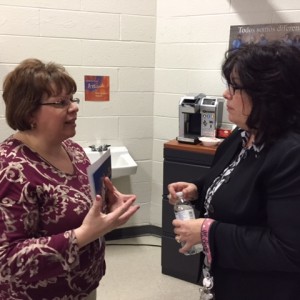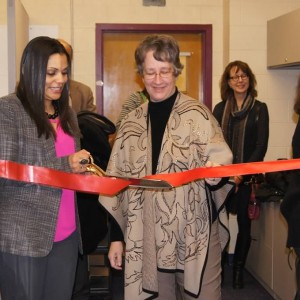The CommPACT Schools project has been in existence since 2008. Currently directed by Dr. Michele Femc-Bagwell of the Neag School of Education and a collaborative board of members from AFT-CT, CAPSS, CEA, CFSA, and UCONN, CommPACT resources have been deployed throughout the years to support schools in Hartford, New Haven, New London, Waterbury and Bridgeport. The successes and lessons learned from the project were documented in a 2012 report entitled, CommPACT Lessons Learned.
Now, in 2013, the CommPACT board has determined that it is time to transition the traditional CommPACT model to a new initiative with a defined focus on community schools. In Connecticut, the community schools work is taking root with the support from the teacher unions. Community schools legislation (PA 13-64) passed in 2013 paved the way for expanded community school development within the Commissioner’s Network Schools and Alliance districts. CommPACT is named in the bill as one of three turnaround approaches from which community schools may select. The CommPACT board has agreed that now is the perfect time to merge CommPACT best practices with the Community Schools effort in Connecticut in ways that will result in more comprehensive and coordinated school transformation. With a direct focus in the area of family and community engagement the CommPACT School model will now be known as the CommPACT Community Schools Collaborative.
Our work in CommPACT, particularly our work in community and parent engagement as well as our processes for building inclusive school-based plans for improvement, has demonstrated our capacity for providing specific and needed technical assistance and resources to schools seeking to engage parents, families, and community partners in more meaningful and purposeful ways in schools. While CommPACT was implemented as a multi-faceted approach to school improvement, we have found that CommPACT’s most effective activities have been the establishment and coordination of parent involvement and community engagement programs and activities. These tasks are outside the purview of the classroom teacher and many schools do not have resources or personnel designated to them.
The hallmarks of CommPACT – stakeholder empowerment, local level identification of challenges and needs, empowering teachers for change, parent and community engagement, cultivation of local resources, focus on data-driven problem framing, problem solving, and results analysis – neatly align with the hallmarks of a community school: community partners, faculty buy-in, parent involvement, school as community hub, extended learning time, and wraparound services. In addition, the merging of CommPACT and Community Schools builds on the strong collaboration of CommPACT and the teachers’ unions that was critical in successful school change.
In the past, CommPACT has successfully matched university faculty with schools to meet specific needs such as a need for more intensive reading instruction or a more comprehensive student behavior support system. The Neag School has recently added six faculty members with expertise in studying what works in promoting school reform and student achievement who may obtain external grant funding to provide and study interventions. CommPACT will continue to serve in this key role of aligning research to applied practice based on the needs of identified schools.
We believe that CommPACT’s collaboration with Community Schools will enhance CommPACT’s effectiveness by offering expanded access to schools and districts that are considering the community schools approach, assessing capacity for community school work, maximizing resources to those schools, and generating reliable data on indicators of success.
Mission, Vision and Goals
The redesigned CommPACT Model, the CommPACT Community Schools Collaborative, provides resources, materials, technical assistance, and evaluation frameworks to guide the establishment of community schools. It will strive:
- To advise and assist with application of CommPACT principles and practices and community school development strategies to schools interested in becoming community schools or building parent/family or community engagement.
- To recognize that all community schools are different.
- To promote the AFT resolution on community schools.pdf.
- To provide resources to community schools for parent and community engagement.
- To create/earmark budgets for CommPACT to schools in development; steward CommPACT funds, matching grants and/or focus on seed money.
- To advocate for legislation/funding for Community Schools.





































Governance
Governed by establish bylaws, the Executive Board will oversee the initiative’s operations and budgets and includes the original CommPACT Partners: American Federation of Teachers of Connecticut, Connecticut Education Association, Connecticut Federation of School Administrators, Connecticut Association of Public School Superintendents and the Neag School of Education at UConn.
To expand the knowledge base and resources available to the initiative, an Advisory Board will be formed. The Advisory Board will support the Executive Board through program advocacy, networking, publicity, funding connections, information sharing and awareness.
Application
The Board of Directors will select a limited number of schools annually in July to participate in the program. To apply please complete the following application and submit to barbara.sousa@uconn.edu.
Research
Faculty from the Neag School of Education at UConn will design a research agenda as identified by participating schools and their stakeholders to support program growth and development.
Resources
With the assistance of a CommPACT Community Schools Collaborative Coordinator and in the spirit of the CommPACT process, each school will form a cadre to come to consensus in determining their needs to support their community school initiative. Based on these findings, the CommPACT Community Schools Collaborative will coordinate with the school to provide resources to support their efforts.